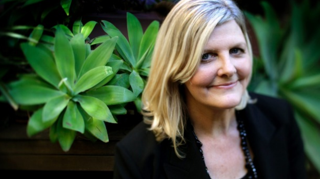Sam Mostyn – Wise Words
The chair of Citigroup Australia is concerned about stubborn pockets of youth unemployment – and prospects of young people who haven’t had the life chances that her teenage daughter has.

I have a deep concern about youth unemployment in Australia.
On key indicators we are a wealthy country, yet we are beginning to sense that the world we are handing to the next generation is in worse shape than the one we inherited from our parents.
I can’t help but think about youth unemployment through the prism of inequality.
Australia has great stories to tell about our prosperity, but we still use measurements of GDP and growth that fail to let us really understand what the critical issues are.
I worry that by not accounting for high levels of youth unemployment –and inequality – which hit hard in outer urban, regional and remote areas, we are complacent about our definition and understanding of ‘prosperity’.
When there is data showing that the unemployment rate for young people in certain parts of the country is approaching 30 per cent, and nationally is sitting in double digits, that should worry most chief executives. Good business leadership must respond to these concerns.
These issues also hit home for me quite personally. Beyond the boardroom, I am a 52-year-old Australian with an 18-year-old daughter.
My daughter, Lotte, is waiting on her Year 12 results. She’s fortunate. She’s had a very good education. She’s an only child, born to two university-educated, professional parents who have done well. Yet, even with all her privileges, my daughter will still struggle to have the kind of career, opportunities and pathways that were open to me.
I am deeply concerned about the prospects of young people who haven’t had the life chances that my daughter has.
As a nation, I don’t think we talk – or do – enough about the challenges disadvantaged youth face in the community. It’s only recently that we’ve begun to unpack youth unemployment by suburb, by region, by economic outcome, to truly understand the crisis it presents for a young person to be unemployed.
There are many pressure points confronting a young person on the fringes of today’s labour market.
In order to get a full picture of what risks the emerging generation of Australians face, we need to understand – and address – the surge in insecure work and underemployment.
There are many, many young people who, while no longer ‘unemployed’ for the purposes of an official statistical count, have insecure work or are balancing several different jobs at the same time.
None of these young people are in a position to think about a mortgage and plan for a first home. Many can barely afford rent and food, let alone hope to achieve the decent quality of life that we’ve come to expect as Australians.
When young people in insecure employment lose their work, crisis can strike in a far worse way than for those who have more permanent jobs or can rely on family and friends to help when catastrophe strikes.
Without a decent safety net, young people who have insecure work face a tough time if they lose what work they can get. Yet don’t all young people in our prosperous country deserve the chance for decent work that allows them to have a good life?
Frankly, I think we’ve got to become more intelligent about the public narrative we have developed about young people.
Rather than saying things like, ‘They’re lazy’ or ‘They are always on their phones’, a compassionate, empathetic response would be, ‘Let me understand what these young people’s world is like today’.
Sam Mostyn is chair of Citigroup Pty Ltd Australia and holds directorships at Virgin Australia, Mirvac, Transurban and the Sydney Swans. Her extensive community work includes a board role at the GO Foundation, working with Indigenous youth.
The Brotherhood’s youth employment programs are supported by Pathways to Progress, Citi and the Citi Foundation’s response to the challenge of youth unemployment globally. Read more
This column first appeared in the Brotherhood of St Laurence’s Youth Unemployment Monitor December 2017.